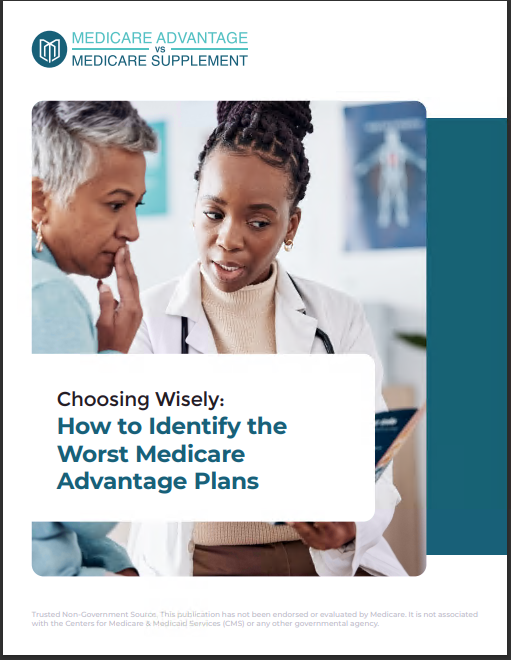Key Takeaways
- Medicare provides comprehensive coverage for skilled nursing care after hospital discharge, ensuring patients receive necessary medical and rehabilitative services.
- Understanding eligibility requirements, covered services, and the application process helps beneficiaries maximize their Medicare benefits.
Medicare Benefits for Skilled Nursing Care After Hospital Discharge
Medicare’s skilled nursing care benefits are crucial for patients transitioning from hospital care to recovery. This type of care provides necessary medical and rehabilitative services to help patients regain their strength and independence. This article explores Medicare’s skilled nursing care benefits, covering eligibility requirements, the benefit period, covered services, costs and copayments, and the application process.
Introduction to Medicare’s Skilled Nursing Care Benefits
Medicare’s skilled nursing care benefits are part of Medicare Part A (Hospital Insurance). These benefits are designed to provide short-term skilled care to patients recovering from a serious illness, injury, or surgery. Skilled nursing care includes services that require the skills of licensed professionals, such as registered nurses, physical therapists, and speech-language pathologists. The goal is to help patients recover and improve their ability to perform daily activities.
Skilled nursing care is typically provided in a skilled nursing facility (SNF), which is a specialized medical facility that offers a higher level of care than can be provided at home or in a standard nursing home. Medicare covers a range of services in SNFs, ensuring that patients receive comprehensive care tailored to their individual needs.
Eligibility Requirements for Skilled Nursing Care Coverage
To qualify for Medicare’s skilled nursing care benefits, patients must meet specific eligibility criteria. Understanding these requirements is essential to ensure that beneficiaries can access the care they need.
Hospital Stay Requirement
The patient must have a qualifying hospital stay to be eligible for skilled nursing care. This means:
- Inpatient Status: The patient must have been admitted to the hospital as an inpatient for at least three consecutive days (72 hours), not counting the day of discharge.
- Timing of Admission to SNF: The patient must be admitted to the skilled nursing facility within 30 days of hospital discharge. If the patient is readmitted to the hospital, the 30-day period may restart.
Medical Necessity
Medicare covers skilled nursing care only if it is medically necessary. This means that the care must be ordered by a doctor and must require the skills of qualified health professionals. The services must be necessary for the patient’s recovery or management of their condition.
Skilled Services Requirement
The patient must require skilled nursing services or skilled rehabilitation services on a daily basis. These services must be provided by or under the supervision of licensed professionals, such as registered nurses, physical therapists, or speech-language pathologists.
Medicare Part A Enrollment
Patients must be enrolled in Medicare Part A to be eligible for skilled nursing facility coverage. Enrollment in Part A typically occurs automatically at age 65 for those receiving Social Security benefits, but individuals under 65 with certain disabilities may also be eligible.
Understanding the Skilled Nursing Facility Benefit Period
Medicare’s coverage for skilled nursing care is structured around benefit periods. Understanding how these benefit periods work is crucial for maximizing benefits.
Definition of a Benefit Period
A benefit period begins the day the patient is admitted to the hospital or skilled nursing facility and ends when the patient has not received inpatient hospital care or skilled care in an SNF for 60 consecutive days. If the patient is readmitted to the hospital or SNF after 60 days, a new benefit period begins.
Coverage Limits Within a Benefit Period
- Days 1-20: Medicare Part A covers the full cost of skilled nursing care for the first 20 days of each benefit period. This includes room and board, nursing services, rehabilitation services, and other necessary medical services and supplies.
- Days 21-100: For days 21 to 100, patients are responsible for a daily copayment, which is adjusted annually. As of 2024, the copayment is $200 per day.
- After 100 Days: After 100 days, patients are responsible for the full cost of care unless they have supplemental insurance that covers additional days.
Services Covered Under Medicare’s Skilled Nursing Care
Medicare’s skilled nursing facility benefit covers a wide range of services designed to support the patient’s recovery and rehabilitation. Understanding what services are covered can help beneficiaries make informed decisions about their care and maximize their Medicare benefits.
Covered Services
Medicare covers the following services in a skilled nursing facility:
- Skilled Nursing Care: Professional nursing services provided 24/7 by registered nurses or licensed practical nurses under the supervision of a registered nurse.
- Rehabilitation Therapy: Physical therapy, occupational therapy, and speech-language pathology services to help patients regain their physical and functional abilities.
- Medical Social Services: Counseling and support services provided by medical social workers to help patients and their families cope with the emotional and social aspects of the patient’s condition.
- Medications: Medications prescribed by the patient’s doctor and administered by skilled nursing staff.
- Medical Supplies and Equipment: Necessary medical supplies and equipment, such as bandages, catheters, and walkers.
- Dietary Services: Nutritional meals and dietary counseling to ensure the patient’s dietary needs are met.
- Ambulance Transportation: Transportation to and from medical appointments if it is medically necessary and arranged by the skilled nursing facility.
Non-Covered Services
Certain services and items are not covered under Medicare’s skilled nursing facility benefit. These may include:
- Long-term Care: Custodial care or personal care services that do not require the skills of licensed professionals.
- Private Room: Unless medically necessary, Medicare does not cover the cost of a private room in a skilled nursing facility.
- Personal Items: Non-medical items such as personal hygiene products, television, and telephone services.
Costs and Copayments for Skilled Nursing Facility Care
Understanding the costs and copayments associated with skilled nursing facility care is essential for effective financial planning and maximizing Medicare benefits.
Medicare Part A Costs
Medicare Part A covers the full cost of skilled nursing care for the first 20 days of each benefit period. For days 21 to 100, patients are responsible for a daily copayment, which is $200 per day in 2024. After 100 days, patients must pay the full cost of care unless they have supplemental insurance.
Supplemental Insurance
Supplemental insurance, such as Medigap policies, can help cover costs not paid by Medicare, including copayments for days 21 to 100 and additional days of care beyond 100 days. It is essential to review the terms of any supplemental insurance policy to understand the extent of coverage provided.
How to Apply for Skilled Nursing Care Benefits
Applying for Medicare’s skilled nursing care benefits involves several steps to ensure that eligible patients receive the necessary care.
Initial Assessment
Patients and families should consult with the patient’s primary doctor to discuss skilled nursing care options and obtain a referral. The doctor will evaluate the patient’s condition and determine if skilled nursing care is medically necessary.
Admission to a Skilled Nursing Facility
Once the need for skilled nursing care is established, the patient must be admitted to a Medicare-certified skilled nursing facility within 30 days of hospital discharge. The facility will conduct an initial assessment to develop a personalized care plan based on the patient’s needs.
Verification of Medicare Coverage
The skilled nursing facility will verify the patient’s Medicare Part A coverage and confirm eligibility for skilled nursing care benefits. This includes ensuring that the patient had a qualifying hospital stay and meets the medical necessity criteria.
Conclusion
Medicare’s skilled nursing care benefits provide essential support for patients transitioning from hospital care to recovery. By understanding the eligibility requirements, benefit periods, covered services, and costs, beneficiaries can effectively utilize these benefits to aid their recovery and improve their quality of life. Applying for skilled nursing care involves consulting with healthcare providers, selecting a Medicare-certified facility, and verifying coverage to ensure that patients receive the necessary medical and rehabilitative services.
Navigating Medicare’s skilled nursing facility benefits can be complex, but with the right knowledge and preparation, patients and their families can make informed decisions about their care. By meeting the eligibility requirements, understanding the covered services, and knowing the costs involved, beneficiaries can effectively utilize Medicare’s skilled nursing care benefits to support their recovery journey.
Contact Information:
Email: [email protected]
Phone: 6195558901










